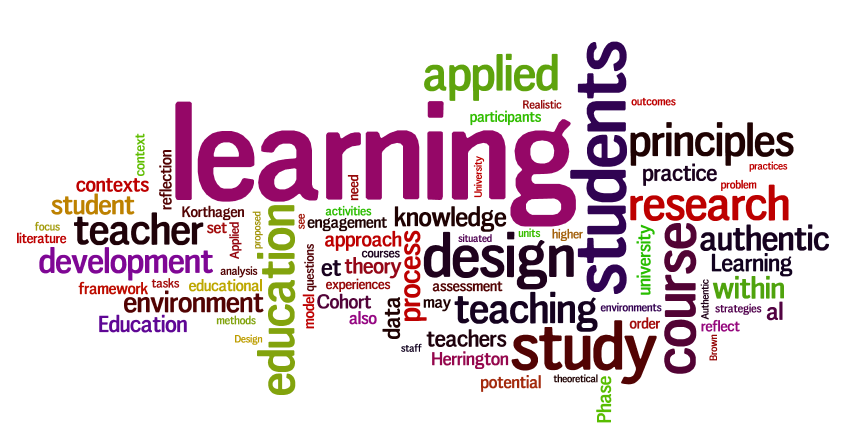Jill Downing
Applied learning design in an online teacher education course
THESIS DOWNLOAD:
Download pdf of complete thesis:
Abstract
The profile of students enrolled in higher education is changing rapidly. Compared to a generation ago, students are likely to be older, juggling study with work and personal commitments and may well be the first in their family to attend university. These students arrive at university with a significant store of life experience but often filled with trepidation about their capacity to succeed academically. Despite their classification as ‘non-traditional’ students it is usually assumed that they will engage effectively with traditional approaches in the learning and teaching environment. Yet the high attrition rate amongst this cohort suggests that providers should be considering new ways to engage and retain these students.
This study investigated an alternative pedagogical approach in a teacher-education course whose cohort consisted entirely of non-traditional students. Building on previous research on authentic learning, a set of applied learning design principles was created to guide the development and delivery of a course of fully online units in a four year undergraduate degree. Applied learning is a pedagogical approach often associated with vocational education and training but it has potential for greater application within the higher education sector. The applied learning design principles guiding the course aimed to enable students to directly apply what they were learning about to real-life contexts, in order to bring theory and practice together in meaningful ways. This study investigated the experiences of students over an eighteen month period using the iterative process of design-based research, to assess the influence and effectiveness of the applied learning design principles.
The findings of this study contribute new knowledge about the characteristics and needs of non-traditional students and their behaviour in the learning environment. The findings uncovered a vulnerability for self-doubt and withdrawal, sitting alongside a common desire to contribute altruistically to the learning community. Indeed, it appears the provision of opportunities to give meaningfully to the learning community may actually help students to address concerns over their worthiness and capability to succeed in higher education. The investigation concludes that an applied learning approach that respects and integrates the students’ lived experience can lead to positive, even transformational outcomes for students.
This study produced new understandings of an alternative pedagogical approach in a higher education context. The applied learning design principles can assist course developers in building an environment that links university study to the workplace more effectively and facilitates the development of graduate attributes. Additionally, the findings reveal ways for teaching staff to capitalise on the affordances of web-based technology to support geographically and characteristically diverse students. In an era of unprecedented growth in the numbers of non-traditional students embarking on higher education, this investigation provides a set of tested principles to guide the pedagogical design of online teacher-education and, potentially, more broadly in higher education.

Publications
Downing,
J. & Herrington, J. (2013). Design principles for applied learning
in higher education: A pedagogical approach for non-traditional
students in an online course. In J. Herrington, A. Couros & V.
Irvine (Eds.), Proceedings of EdMedia 2013 - World Conference on Educational Media and Technology (pp. 874-881). Chesapeake, VA: AACE. (Link to paper)